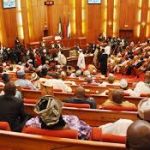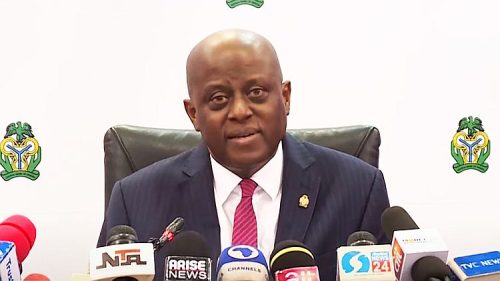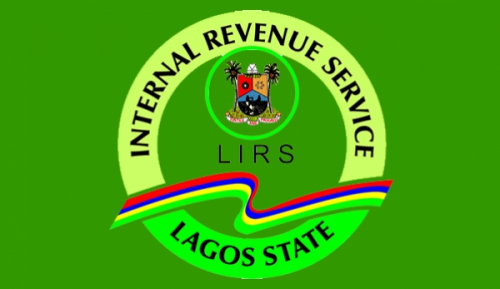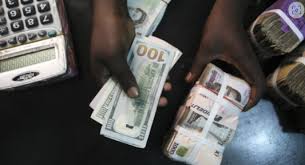More Fuel pains, silence
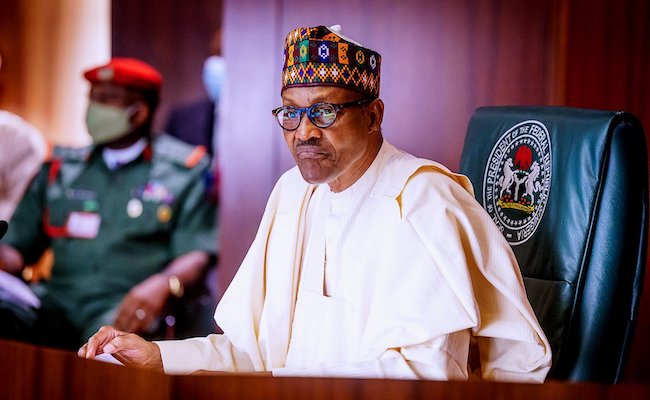
By Philip Clement & Patrick Okohue
While the President Muhammadu Buhari-led administration is not the first to fiddle controversially with the pump price of petrol, what many analysts may find surprising is that the government’s action is receiving the loudest silence.
Key stakeholders that spearheaded the ‘Occupy Nigeria’ protest in 2012 have been remarkably quiet.
This is despite the twin hike in electricity tariff and the pump price of petrol coming while Nigerians are yet to recover from the economic tsunami wreaked by COVID-19.
The announcement in January 2012 of the removal of fuel subsidy by the President Goodluck Jonathan government was fiercely resisted by many Nigerians, especially in Lagos where a massive protest broke out at the Gani Fawehinmi Park.
The aim was to force the government to return the price to the original N65 per litre (from N120). Eventually, the government reversed itself but pegged the price at N97.
Prominent voices at the protest included Pastor Tunde Bakare, Femi Kuti and Fela Durotoye. In a recent tweet, a former senator representing Kaduna Central, Shehu Sani, claimed: “Everybody is waiting for somebody to protest and there is nobody.”
Nigerian lawyer, Monday Ubani, in a recent interview told an online media: “Many of activists who fought in 2012 are in bed with this present government; they may not be forceful enough to take any position considered inimical to the interest of the elites in power.
“Nobody wants to be thrown into detention. This is a government where the DSS feels empowered to say they cannot obey any court in the East.”
Daily Times reports that labour unions have rejected the hike in electricity tariff and petrol prices but are yet to match their words with action.
A timeline of petrol price increment in Nigeria shows that in 1973, during the Nigeria is to benefit from 7.2 million pound research support funded by the UK government for 20 new projects, to help address the impact of COVID-19 in vulnerable communities.
The support, which aimed at delivering healthcare access for patients in Nigeria, would also deliver mass vaccination capacity in Bangladesh and protective equipment for refugees in Jordan.
The UK in the new programme, announced on Sept. 5, would be partnering with leading research institutions to address some of the research and technological challenges of the benefiting countries, especially as it relates to COVID-19.
Some of the projects announced are: “King’s College London will lead a training programme for healthcare workers across Nigeria and Tanzania enabling them to deliver trusted and safe care to patients over the phone where internet availability is limited.
“Trials will involve 20 health clinics in each country to test the effectiveness of remote health appointments, recommended by the World Health Organisation (WHO) during the pandemic, to help minimise physical contact that can spread the virus.
“King’s College London will work with University of Ibadan, Nigeria; Makerere University, Uganda; and St Francis University College of Health and Allied Sciences, Tanzania,” it said.
The funds would also cover the partnership between the University of Birmingham, working with Brac University and Bangladesh University of Engineering and Technology to increase vaccine access in developing economies. This, it hoped to achieve by researching more effective ways of storing and transporting vaccines from point of manufacture to the point of use.
It also hoped to ward against weak supply chains with inconsistent temperature control which could reduce the effectiveness of vaccines by up to 25 per cent.
Also on the list is the University of Bath and the University of Lagos’ collaboration, aimed to address the issue of limited COVID-19 testing capacity in Africa by leading a project to measure the disease in domestic wastewater, which could help reveal the health status of a population.
“By studying wastewater, real time information about infection prevalence across South Africa and Nigeria can be accessed, enabling rapid identification of COVID-19 hot spots, and helping to shape decisions around entry and exit from ‘lockdown’ periods,” it said.
A statement by the UK Office quoted Business Secretary, Alok Sharma as saying: “Defeating Coronavirus is a truly global endeavour, which is why we’re backing Britain’s scientists and researchers to work with their international counterparts to find tech solutions to treat and combat this virus around the world.
“The research projects we are backing today will ensure that we equip some of the most vulnerable communities with the resources they need to tackle COVID-19 and build their long-term resilience to respond to future pandemics, making us all safer.”
According to the statement, other projects receiving funding include: developing a parental advice app for families affected by COVID-19 school closures across Africa by the University of Oxford, working with the University of Cape Town.
Also on the funding list is a partnership between Birmingham City University and Lusaka and Ndola Colleges of Nursing to help improve the clinical decision making of nurses in Zambia, helping to free up their time and prevent healthcare systems from becoming overwhelmed.
Also to be funded is the production of personal protective equipment with digital and 3D printing for Jordan’s Zaatari refugee camp by the University of Sheffield, working with the UN Refugee Agency.
According to the statement, the Zaatari Camp is home to approximately 80,000 Syrian refugees.
“The University of Edinburgh will work with the Open University of Tanzania to identify measures to make voting safer and more secure in African elections to promote social distancing and to slow the spread of Coronavirus.
Speaking, Prof. Andrew Thompson, International Champion, UK Research and Innovation said: “COVID-19 is demonstrating how the world’s biggest problems transcend rich and poor countries.”
More Fuel pains, silence government of General Yakubu Gowon, the commodity sold between 6k and 8.45k (40.83%).
When the late General Murtala Mohammed took over in1976, it was between 8.45k and 9k representing (6.5%).
President Obasanjo’s administration moved the price on Oct 1, 1978 from 9k to 15.3k (70%), while President Shehu Shagari government, on April 20, 1982, raised the price from 15.3k to 20k (30.72%).
The Ibrahim Babangida administration, on March 31, 1986, took the price from 20k to 39.5k (97.5%) and later on Apr 10, 1988 moved again from 39.5k to 42k (6.33%).
Also, on Jan 1, 1989, the government hiked the price from 42k to 60k (42.86%) and on March 6, 1991 moved it from 60k to70k (16.67%).
The interim government led by, Sir Ernest Shonekan moved oil prices from 70k to N5 (614.29%).
During the reign of Gen. Sani Abacha, on Nov 22, 1993, the price dropped from N5 to N3.25k representing a decline of (35%).
Abacha ironically on Oct 2, 1994 hiked the price N3.25k to N15 (361.54%). This was later dropped to N11 (26.67%).
Abdulsalami Abubakar, on Dec 20, 1998 raised the price from N11 to N25 showing a (127.27%) increase.
Later on Jan 6, 1999, it was dropped from N25 to N20. On June 1, 2000, following the return of democracy in the preceding year, President Olusegun Obasanjo moved the price from N20 to N30. But on June 8, 2000, he dropped it from N30 to N22.
On Jan 1, 2002, he hiked the prices from N22 to N26, and by June, 2003, from N26 to N42. On May 29, 2004, he increased the price from N42 to N50; on Aug 25, 2004, from 50 to N65, and on May 27, 2007, from N65 to N75.
When the late President Umaru Musa Yar’ Adua came to power, he, in June, 2007 reversed the price back to N65.
His successor, President Goodluck Jonathan, on Jan 1, 2012 raised the price from N65 to N141 showing a jump of about (116.92%).
This was when President Jonathan announced the end to the era of fuel subsidy payment.
However, the decision didn’t go down well with Nigerians as it was greeted with condemnation which forced the government on Jan 17, 2012 to reverse the price from N141 to N97.
Jonathan on Feb, 2015, further dropped the price from N97 to N87.
Buhari, who had been vocal about removing fuel subsidy during his campaign came to power and on May 11, 2016 announced a ‘subsidy removal’, raising the price from N87 to N145.
But the government was still paying billions for subsidy: what the then minister of state for petroleum resources, Ibe Kachikwu, often described as ‘underrecovery’.
Nigerians were however shocked to wake up on September 2, 2020 to hear that the federal government had again raised prices to N151 per, even as the commodity sells in many fueling stations between N158 and N161.
Daily Times notes that the late Yar’Adua was the only Nigerian leader who did not increase the pump price of fuel. Also, President Buhari is the Nigerian leader that has tinkered with prices the most, as the cost increased by over N70 in just 5yrs.
A report by BudgIT, suggests that Nigeria spent N10 trillion from 2006 to 2018 on fuel subsidy.
The report titled, “Nigeria’s Petrol Subsidy Regime: Dilemma of the World’s Most Populous Black Nation”, states, “Nigeria currently imports an average of 91 percent of its daily petrol needs, thus disproportionately exposing local petrol prices to price shocks from international factors of production and exchange rate volatility.”
On the implication of the adverse development, the report states: “BudgIT notes with dismay that fuel subsidy deprive Nigeria of funds needed for critical socioeconomic development as it discourages investors, who generally prefer a deregulated industry, from investing in the downstream sector especially in the area of refinery construction and operation.”
In the 2020 budget alone, the federal government allocated about N450 billion to be spent on fuel subsidy.
The minister of state for petroleum resources, Timipre Sylva, has said that the government can no longer afford to pay subsidies and that the era of fuel subsidy is gone.
Also, at a press briefing to justify the government’s decision on removing subsidy, Minister of Information and Culture, Lai Mohammed, said fuel subsidy is unsustainable.
Mohammed noted that the federal government spent N10.413trillion from 2006 to 2019. He said, “The cost of fuel subsidy is too high and unsustainable.
From 2006 to 2019, fuel subsidy gulped N10.413trillion. Government can no longer afford to subsidize petrol prices, because of its many negative consequences.”
Findings by Daily Times show that if the said amount spent on subsidy were to be channeled into infrastructure development, it would build 360 advanced cancer treatment centre in each federal constituency at N4bn each as well as 37 world-class universities in each state at N386bn In the same vein, 1km road in 774LGAs at N238m each can be built with the amount according to World Bank specifications alongside 8,809 boreholes in each ward at N500,000.
Also, 6 standard power plants can be constructed in the 6 geo-political zones at N232bn each as well as a standard international airport at N3.8 trillion.
READ ALSO: Fuel subsidy unsustainable after 13 years – Lai Mohammed
Meanwhile, on why there may not be any significant public disapproval on the petrol price increase, a political analyst told Daily Times: “Look at it this way, when Jonathan was in power some people in the opposition in the South West were not quite comfortable, not just with the fact that the Peoples Democratic Party (PDP) was not the party of their choice, but Jonathan was just a President of circumstance.
If they had a choice he would never be, so they have to look everywhere for his faults and when that fuel price increase came, they saw an opportunity in that.
“They reasoned that the longer Jonathan stays in office the more difficult it will be for power to get to them, as the North will want power to return to them and they will want to also spend equal number of years in office, so they were ready to do everything to paint Jonathan black in the eyes of the people and that protest was a good opportunity and they did not miss it.”
The analyst said that the current situation is not a case of nothing to protest about, but rather it is not politically convenient.
Despite the biting economic realities and the obvious deafness of the government to the plights of the people, a protest will be country productive, he said.
He wondered what could be worse than an increase in pump price of fuel a day after a 100 percent increase in electricity tariff, shortly after increase in VAT rate among other increases.
He reasoned that protesting against these things now will be putting the ruling All Progressives Congress (APC) in bad light and presenting it as unelectable in the 2023 election when some key leaders in the South West, some of whom were fingered in the sponsorship of the 2012 protest are believed to be eyeing top positions in the government on the platform of the ruling APC.
Protest now, he reasoned, will only help to project the PDP as a better alternative, so it is better to speak soft words to the people to try to pacify them.


